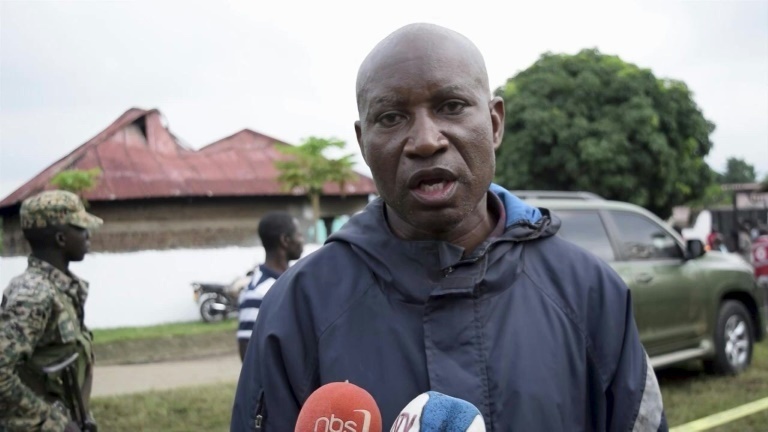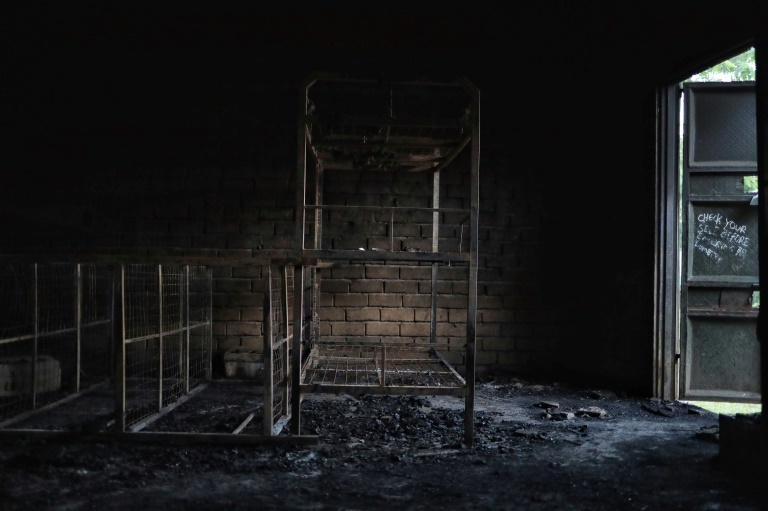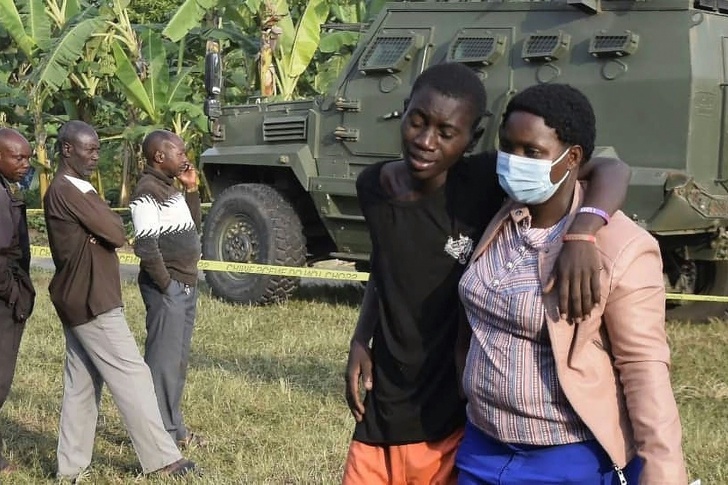Distraught families gathered at a mortuary in western Uganda on Sunday for any news of their loved ones after a militant attack left dozens of students dead and others missing.
Officials say at least 41 people, mostly students, were massacred at a secondary school near the border of the Democratic Republic of Congo late Friday by militants linked to the Islamic State group.
Victims were hacked, shot and burned to death in a brutal attack at Lhubiriha Secondary School in Mpondwe that has shocked Uganda and drawn condemnation from around the globe.
The army and police have blamed the Allied Democratic Front (ADF), a militia based in DR Congo, who fled back to the border with six abductees in captivity after the attack.
The military said it was pursuing the attackers and would recover those kidnapped.
Many of the victims were burned beyond recognition when the attackers set a locked dormitory ablaze, frustrating efforts to identify the dead and account for the missing.

But for many others, there was no news of missing relatives. Many of those killed in the fire were transferred to the city of Fort Portal where DNA testing can be conducted.
It is the deadliest militant attack in Uganda since 2010, when 76 people were killed in twin bombings in Kampala by the Somalia-based group Al-Shabaab.
- 'They will pay' -
UN Secretary-General Antonio Guterres called it "an appalling act" while the United States, a close ally of Uganda, and the African Union also sent their condolences and condemned the bloodshed.
Seventeen male students were burned in their dormitory while 20 female students were hacked to death, said Uganda's first lady and education minister, Janet Museveni.
A security guard and three members of the public were also killed, officials said.
The army would track down "these evil people and they will pay for what they have done", Museveni said on Saturday.
But questions have been raised about how the attackers managed to evade detection in a border region with a heavily military presence.

Uganda and DR Congo launched a joint offensive in 2021 to drive the ADF out of their Congolese strongholds, but the measures have failed to blunt the group's violence.
In June 1998, 80 students were burnt to death in their dormitories in an ADF attack on Uganda's Kichwamba Technical Institute near the DR Congo border.
More than 100 students were abducted.
gm-np/rox
© Agence France-Presse
Your content is great. However, if any of the content contained herein violates any rights of yours, including those of copyright, please contact us immediately by e-mail at media[@]kissrpr.com.
Source: Story.KISSPR.com

